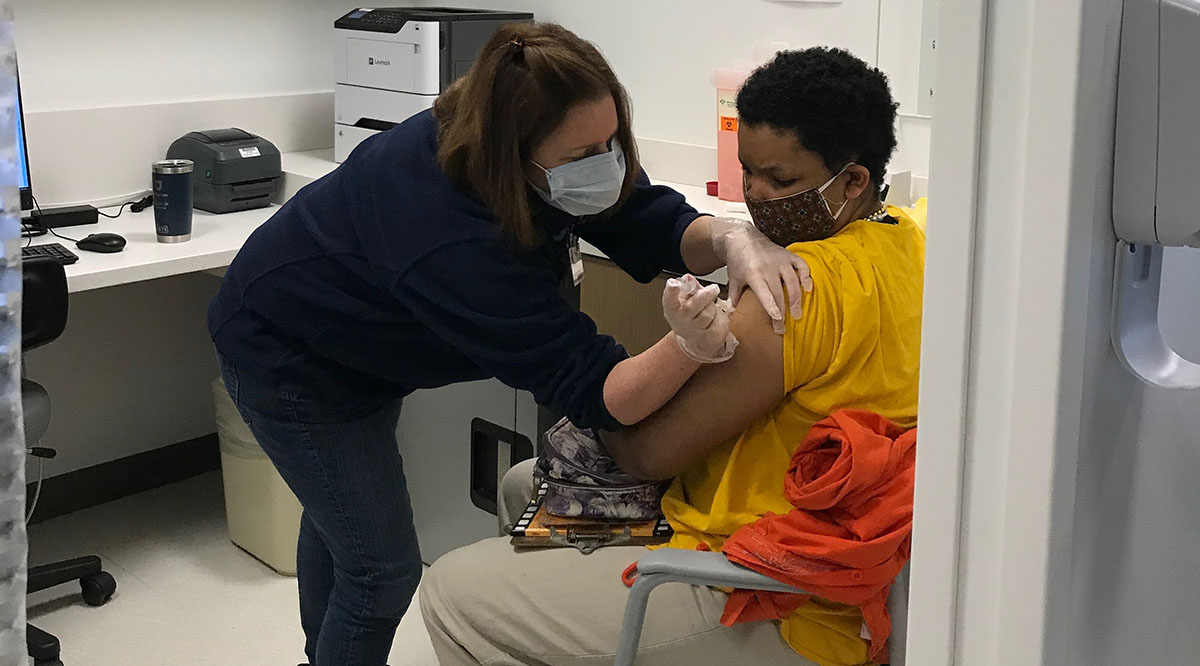Intellectual Disabilities Equal Greater Susceptibility to COVID, Hospitalization, Death
"These findings should inform vaccination strategies that often prioritize older adults in the general population resulting in people with IDD [intellectual and developmental disabilities], who are often in younger age groups, being overlooked."Ontario research group ICES-supported study"Now that we've seen some of these data, we can't say, 'Well, we didn't know', or, 'We heard about this issue --- in other places, but we didn't really know it could be an issue here'.""We know it's not unique to other countries, it's also happening here.""All kinds of things can go on [in people with IDD] that lead up to a person's death."Yona Lunsky, senior scientist, CAMH (The Centre for Addiction and Mental Health)
 |
A study recently published online by Disability and Health Journal presents new data emphasizing what experts and leaders in the sector of disability have learned of during the pandemic while urging governments to give priority attention to protecting people with developmental disabilities on the basis of the reality that they face a particular danger from the disease. The study sets out the rationale for doing just that. Adults in Ontario with intellectual and development disabilities are seen to be over twice as likely to be hospitalized with COVID-19, and to die from it, in comparison with adults without IDD.
The study looked at test positivity, hospitalizations and deaths occurring between January 2020 and mid-January of 2021, in the province of Ontario. Of that age group specifically under age 55, the likelihood of death was over 15 times higher for people with IDD. Specific scrutiny was given in the study of outcomes for adults with Down syndrome representative of the diagnoses included in the IDD group.
Other chromosomal anomalies such as intellectual disability, fetal alcohol syndrome and autism spectrum disorder, were also included. The study found a more than 6.5 time higher rate of death caused by COVID among the group than that experienced within the general population of adults not having IDD, along with a 3.6-times-greater likelihood of hospitalization for those testing positive for the virus.
CAMH senior scientists Yona Lunsky's voice had sounded the alarm over the threat which COVID-19 presents to people with developmental disabilities throughout the length of the pandemic. Pre-existing information relating to this vulnerable population existed; their likelihood of premature death and high-risk health conditions were more frequently experienced. Added to which is COVID-era evidence from jurisdictions like the U.K. and U.S.
What still eludes understanding is why such elevated death rates observed for those with IDD relative to those without, occur to begin with. The probability is that it is the disability in and of itself that is a risk factor. The variables involved which lead to COVID infection and dying of its effects are many but this is an area not addressed by the study; how long was the individual infected before diagnosis, for one.
And then, what kind of treatment was immediately administered? And was hospital admission prompt on the first visit to hospital? Did a caregiver accompany the individual on presentation at hospital who could help in the management of the afflicted person's distress and assist in communication? For those on the autism spectrum for whom abstract discussions supporting vaccination is troublesome, personal terms of explanation may help to boost confidence.
Among the population of those at higher risk due to abnormal or subdued intellectual levels, there are some whose disabilities have helped lead to situations where access to COVID vaccination has been delayed for many reasons, the least of which is an individual's dread of anticipating a process they are unfamiliar with and tend to distrust.
 |
| Jane Tobias, DNP, RN, MSN, gives a patient a COVID-19 vaccine at an April 3 event in Philadelphia that Jefferson Health designed to meet the needs of people with intellectual disabilities. Courtesy: Jefferson Health |
Labels: COVID-19, Intellectual Disabilities, Study, Vaccination, Vulnerability

0 Comments:
Post a Comment
<< Home